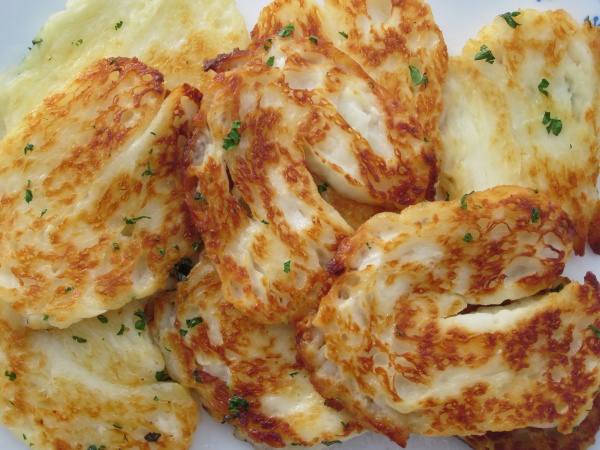Facts About Halloumi
Halloumi, sometimes spelled haloumi, is a distinctive cheese known for its semi-hard, unripened, and brined characteristics. Crafted from a blend of goat's and sheep's milk—and sometimes cow's milk—halloumi possesses a high melting point, making it ideal for frying or grilling. This quality has popularized it as a meat substitute in various dishes. The creation of halloumi involves the use of rennet to curdle the milk, without the need for acid-producing bacteria.
Halloumi has historical roots in Cyprus, where it has been produced for centuries. It is also cherished in the Levant region and gained notable popularity in Turkey post-2000. By 2013, the United Kingdom emerged as a major consumer of halloumi, second only to Cyprus in Europe.
The name "halloumi" originates from Modern Greek, but its history can be traced to Egyptian and Coptic traditions, with cheesemaking methods dating back to the Medieval Byzantine era. In Cyprus, halloumi recipes differ from village to village, with each community priding itself on unique techniques and ingredients.
Traditionally, halloumi was made solely from sheep’s and goat’s milk, but industrial production has increasingly utilized cow's milk due to its availability. In the United States, halloumi is recognized as a protected Cypriot product, but in the European Union, discussions persist regarding its composition and registration.
Halloumi is renowned for its distinct layered texture, akin to mozzarella, and its salty flavor. Its ability to be fried or grilled without melting completely makes it an adaptable ingredient in cooking. It is often served with mint leaves to enhance freshness and flavor. Halloumi can be found in a variety of dishes, from salads and saganaki to combinations with watermelon or meats like pork or lamb sausage.
Traditional halloumi is made from unpasteurized sheep and goat milk, with variations such as aged halloumi, which is drier and saltier. Its firm texture even causes a squeak when chewed. Typically, halloumi is shaped into a semicircular form and stored in its natural juices.

 Israel
Israel